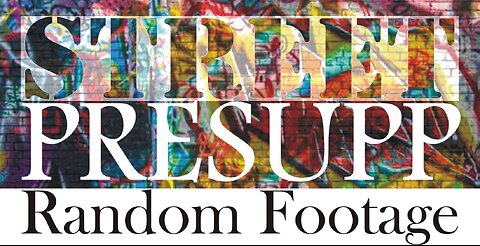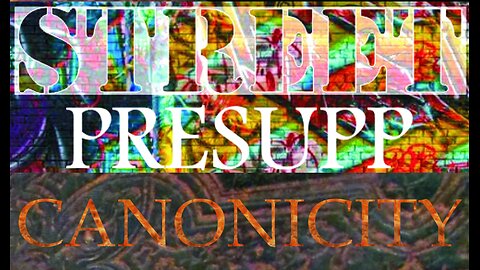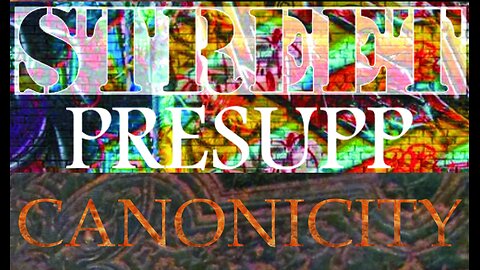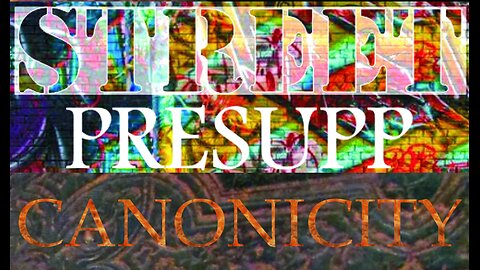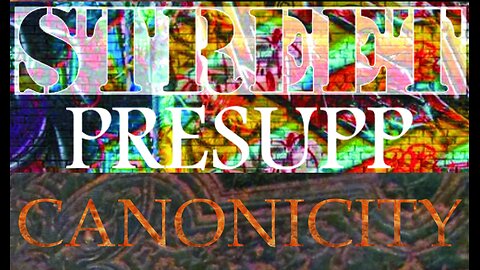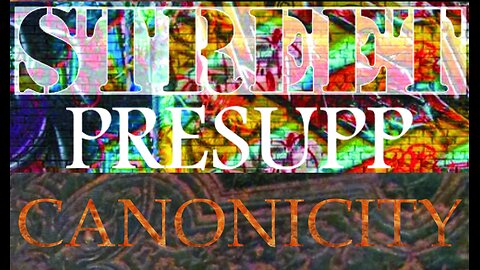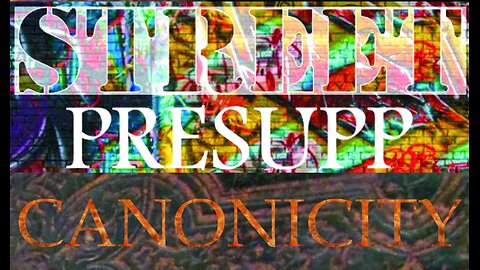
-
What the Bible Says on Canonicity
EEleazarDupreesThe superintending of the canon as well as the preservation of it is a question concerning the providence of God, and the particular God of scripture. If the sort of God in scripture spoke to us, then implicit in that proposition is that he will insure we hear what he spoke to us. God knows what he inspired and intended us to receive. And there are no shortage of scriptures indicating his promise of preservation of his words. (Isa.59:21,Isa.40:8,Prv.22:12,Eccl.3:14,Psa.119:86,90,160,Psa.146:6,Matt.5:18,Deut.30:11,Psa.33:11,Psa.12:6-7,1 Chr.16:15,Psa.111:7-8,Psa.100:5,Isa.30:8,Matt.28:19-20) Words he will judge us by in the resurrection. (Jn.12:47-50, 5:38-9) The Apostles doctrine was at the foundation of the church for the perfecting of the church thus again there would be a finality to this process in their days. (Act.2:42, 1 Cor.12:28, Eph.2:20, 4:11-14, 2 Tim.3:16-7) Inscripturation was in real time (Ac.2:42, 1 Cor.14:37, 2 Pet.3:16, 1 Tim.5:18 w/ Lk.10:7, Ac.13:25, Mt.21:26, w/Jn.1:27, Lk.3:16, 2 Thess.3:14, Rev.1:1-4,11, under the direction of the apostles (2 Pet.3:16, 1 Tim.5:18, Heb.2:3-4, Rev.1:3-4, 11, 3:22, 1 Thes.5:27, Col.4:16) similarly as with the law and the prophets- Deut. 31:24-26; I Sam. 3:19-21,10:25, 1Kin.4:29-30, Dan. 9:2, Isa.8:20, Mal.2:7 w/ Jer.33:20-1 & 2 Ki.22:8) as the gospel was already delivered by Christ and the apostles (Mt.10:40, Lk.10:16, Jn.13:20) and already being defended. (Lk.1:1-4, Heb.1:1-2, 2:3-4, Gal.1:8-12, Jd.3, Rev.1:11,22:13, Heb.12:2)18 views -
Catholics Learn Presupp is Sola Scriptura
EEleazarDupreeshttps://www.youtube.com/playlist?list=PL21jvLtxj92jbqSaFH1mnGx_do1mRNT-q The bible stands alone authenticating its own claims by the revelation necessary to justify any and all knowledge (i.e., presuppositional apologetics). It gives us in its teachings the preconditions needed to account for intelligibility and what we experience.36 views -
Deuterocanonical
EEleazarDupreesThe collection of OT scriptures (i.e. the canon) is repeatedly called the 'law and the prophets': Matthew 11:13, Lk.16:16, Luke 24:27, 44-5, John 5:39. 46, Matt.22:40, Matt.7:12, Matt.5:17, Rom.16:26, Acts 13:15, Acts 24:14, Acts 28:23. The Old Testament canon ends with the law of Moses and the prophet Elijah, (Mal.4:4-6) in other words the witness of the law and the prophets. (Rom.3:21) The next voice we hear is one crying in the wilderness (Mt.3:3, Mk.1:3, Lk.3:4, Jn.1:23, Isa.40:3) heralding the Messiah. The canon (law & prophets) was already closed and there were no more prophets during the Deuterocanonical writings. (2 Maccabees 15:9, 2:13, Ecclesiasticus 1:1, 1 Macc 4:46, 14:41, 9:27) The question of the canon is a question regarding the providence of God not one that can be answered with history. Apostles doctrine was at the foundation of the church for the perfecting of the church thus again there would be a finality to this process in their days. (Act.2:42, 1 Cor.12:28, Eph.2:20, 4:11-14, 2 Tim.3:16-7) Inscripturation was in real time (Ac.2:42, 1 Cor.14:37, 2 Pet.3:16, 1 Tim.5:18 w/ Lk.10:7, Ac.13:25, Mt.21:26, w/Jn.1:27, Lk.3:16, 2 Thess.3:14, Rev.1:1-4,11, similarly as with the law and the prophets- Deut. 31:24-26; I Sam. 3:19-21,10:25, 1Kin.4:29-30, Dan. 9:2, Isa.8:20, Mal.2:7 w/ Jer.33:20-1 & 2 Ki.22:8) as the gospel was already delivered by Christ and the apostles (Mt.10:40, Lk.10:16, Jn.13:20) and already being defended. (Lk.1:1-4, Heb.1:1-2, 2:3-4, Gal.1:8-12, Jd.3, Rev.1:11,22:13, Heb.12:2) The Jews had the oracles of God, the adoption, and the glory, and the covenants, and the giving of the law, and the service of God, and the promises. (Rom.3:2, 9:4, Isa.59:21,Mal.2:7 w/ Jer.33:20-1 & 2 Ki.22:8) Even the enemies of Christ in the Jewish leadership “sit in Moses' seat” thus Jesus instructed “All therefore whatsoever they bid you observe, that observe and do”. (Mt.23:2-3, Mal.2:7, Hag.2:11, Jn.11:49-51) The Apocryphal books show up in the intertestamental period after the law & the prophets are recognized as authoritative. This time frame is supported by the fulfillment of Daniels prophecy (Dan.9:24-6) tying the decree of Cyrus according to Isaiah’s prophecy (Isa.44:26-8, 45:1) and the fulfilling thereof in Ezra and Nehemiah’s day under the ministry of Zechariah and Haggai the prophets (Ezra 5:1, 6:14) The next event being the coming of the Messiah. The Old Testament canon was closed until that Prophet should appear. The New Testament never references the apocryphal books directly except the intertestimental book of 2 Maccabees ch.7 which is referenced in Heb.11:35. But this does not indicate canonicity since the Old Testament canon (law & the prophets) was closed as indicated in 2 Macc. 15:9, 2:13. "A few chapters later it endorses the practice of praying for the dead so that they may be freed from the consequences of their sins (2 Macc. 12:41-45)"; obviously heretical. Also relevant is Ecclesiasticus 1:1, 1 Macc 4:46, 14:41, 9:27. Paul quoted from a pagan poet in Ac.17:28 and a Cretian prophet in Tit.1:12, but that doesn't prove them is canon material. The final 70 weeks place Israel under God's judgment for their sin til the time of the end. Part of God's wrath is his withdrawal of his prophets and revelation. (1 Sam.28:6, Isa.59:1-2, 57:17, 64:7, Deut.32:20, 31:18, Job 13:23-4) Since the beginning of the countdown to the Messiah started with the rebuilding of Jerusalem and the temple, we see the final prophets of the Old Testament directing this rebuilding. (Hag.1:1. Zech.1:1,12, Ezra 5:1, 6:14) And the people still not walking with their God with the whole heart. (Ezra 10:10-44, Neh.13) “Finally, the books of the Apocrypha abound in doctrinal, ethical, and historical errors. For instance, Tobit claims to have been alive when Jeroboam revolted (931 B.C.) and when Assyria conquered Israel (722 B.C.), despite the fact that his lifespan was only a total of 158 years (Tobit 1:3-5; 14:11)! Judith mistakenly identifies Nebuchadnezzar as king of the Assyrians (1:1, 7). Tobit endorses the superstitious use of fish liver to ward off demons (6: 6,7)! Wisdom of Solomon teaches the creation of the world from pre-existent matter (7:17). II Maccabees teaches prayers for the dead (12:45-46), and Tobit teaches salvation by the good work of almsgiving (12:9) -quite contrary to inspired Scripture (such as John 1:3; II Samuel 12:19; Hebrews 9:27; Romans 4:5; Galatians 3:11).”(Bahnsen https://reformed.org/bible/the-concep...)55 views -
Canonicity by Catholics
EEleazarDupreesSo, the bible stands alone authenticating its own claims by the revelation necessary to justify any and all knowledge (I.e., presuppositional apologetics). It gives us in its teachings the preconditions needed to account for intelligibility and what we experience. It doesn’t need any unbridled tyranny as the Roman Magisterium claiming anything. The scripture must be what it claims when evaluating those claims because there are no other worldviews to begin with; no other suit fits. This is particularly troubling for Catholics for their authority claims are mere usurpations. If they attempt to claim the bible is the word of God because of prophecies or any inherent properties of scripture, then they confirm sola scriptura. If they claim it is the word of God on their say so, they lay a fallacy as their cornerstone. And we can still disregard their say so and see that the bibles claims are independent; I don’t need to know where it came from to examine its claims. For the God of scripture established the church and secured his word and preserved it by his people because he is omnipotent and faithful. But if we discarded all historical claims about the bible, it is what it claims to be by the evaluation of its teachings.13 views -
Exceptions, Rules & Infallibility
EEleazarDupreesThe bible justifies belief in itself because unless what it teaches about God is assumed no knowledge is possible. And so, it is demonstrable in objective certainty that the fear of the LORD is the beginning of wisdom, and knowledge, and there is in fact no wisdom nor counsel nor understanding against him. (Psa. 111:10, Prov. 1:7, 9:10, 21:30) He himself is the source of all of these things. He is the source of uniformity and laws in nature and the source of morality. We derive these truths from scripture as the foundation of our Christian philosophy. But along with this truth is the guarantee that this God gave his word and will oversee it until the end of the world. (Mt.28:18-20) To question the canon is to question the existence of the very God necessary to justify thought and evidence for anything whatsoever. It is to cut off the very branch you are sitting on. If that God spoke, then most assuredly he preserved his words to all generations.8 views -
The Framework for History
EEleazarDupreesThe reason we must consider the question of the canon from a Presuppositional Apologetics standpoint is because the question of which books are inspired, and which books belong in the canon is not a historical question it is a theological one. It was an event in history and so history is involved, but history can only provide varying degrees of probable knowledge. What we need is a more sure word of prophecy, we need “Thus saith the LORD”. The research of history presupposes a certain view of reality- of metaphysics and epistemology; a philosophy of history. And the Christian religion provides the only coherent foundation for that. In other words, for there to be such a thing as historical evidence the God of scripture must exist. In order to argue from history, we must already have a view of a particular sort of God in back of reality and not atheism, pantheism or deism. (None of which can justify causation, immaterial invariable laws of math & logic, our minds, or any continuity between the material and immaterial realms.)11 views -
Canonicity
EEleazarDupreesThus, the question of which canon is correct is indistinguishable from the question of which God exists. “In fact it then appears that the argument for the Scripture as the infallible revelation of God is, to all intents and purposes, the same as the argument for the existence of God.” (The Defense of the Faith pg. 109 Van Til) Therefore ‘the indirect method of reasoning by presupposition’ must be employed to answer this question of canonicity. For more research in this area: The Origin & Authority of New Testament Canon | Dr. Michael. J. Kruger • PART 1 Introduction to Canon | The Or... https://www.youtube.com/watch?v=SUvJQmduAdA&list=PLzytIUBlFDMN62nZiv6cPVBYoBaCPJjQM&index=1&t=0s15 views 1 comment
